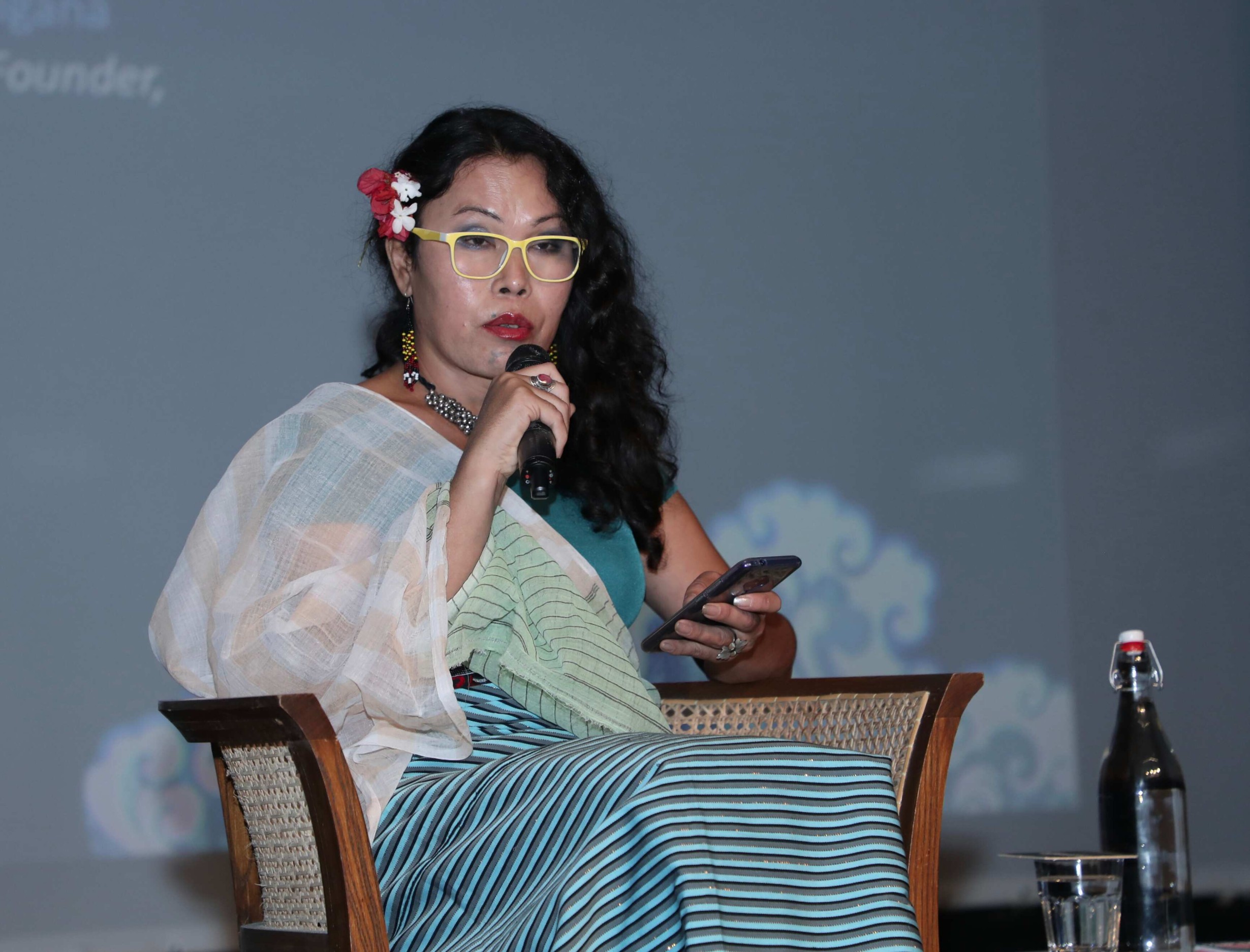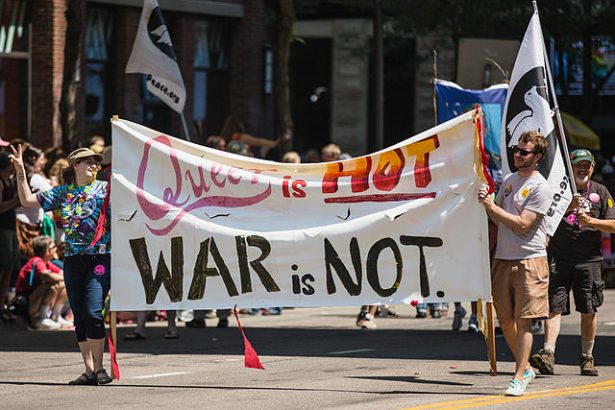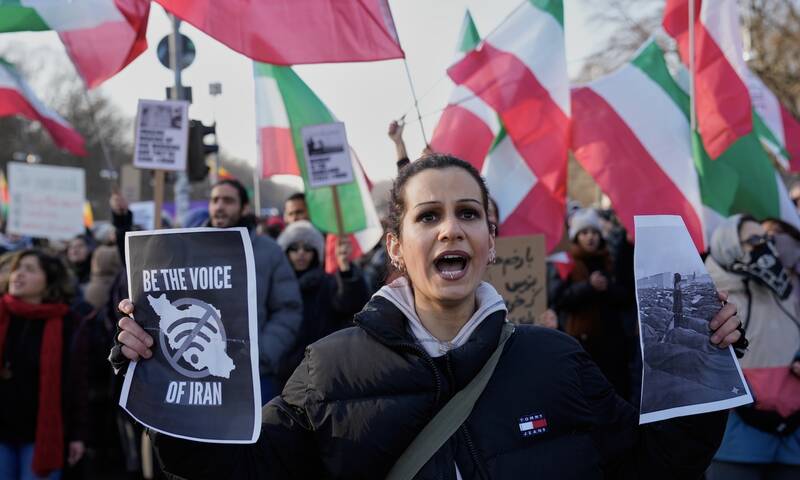In an age marked by wars, geopolitical and social, as well as personal, queer bodies are often left most vulnerable to an onslaught of social, physical and psychological brutality. For long, war has been defined through a geopolitical parlance, focusing on the protection or formation of national identity. However, for queer people, their struggle for survival is a war itself. Globally, we are seeing a two-fold war on queer bodies, an attack by the State and a war by mainstream society.
In the past few months, the UK government rolled back historic rights for trans women. This Pride Month, the Hungarian government banned the Pride March. Closer home, in Amritsar, religious groups protested against and cancelled the Amritsar Pride Parade. As USAID ceases to exist under the Trump presidency, trans rights activism in India faces major funding cuts. Queerphobia, sanctioned by the State in these cases, legally curtails human rights through policy. In the social realm, queer-trans people face violence on a daily basis– from hate crimes like murder and homophobic attacks to sexual violence.
Queer experiences of conflict and war
In these times of war, with the occupation in Gaza and the bombings and attacks in Iran and Israel a few months ago, queer bodies become susceptible to violence. Queer experiences of war and conflict are also unique, and their narratives of facing violence and persecution rarely make it to the mainstream discourses around war. Queer asylum seekers in Kenya’s Kakuma camp reported physical and sexual violence between 2018-22 during the conflicts in Sudan, Ethiopia and Somalia. 26% of the refugees reported rape and sexual assault. In Uganda, refugees were subjected to “corrective rape”, where perpetrators attempted to “cure” queerness through sexual violence. In the face of global violence, queer people face exclusion, invisibilisation and persecution at every point.
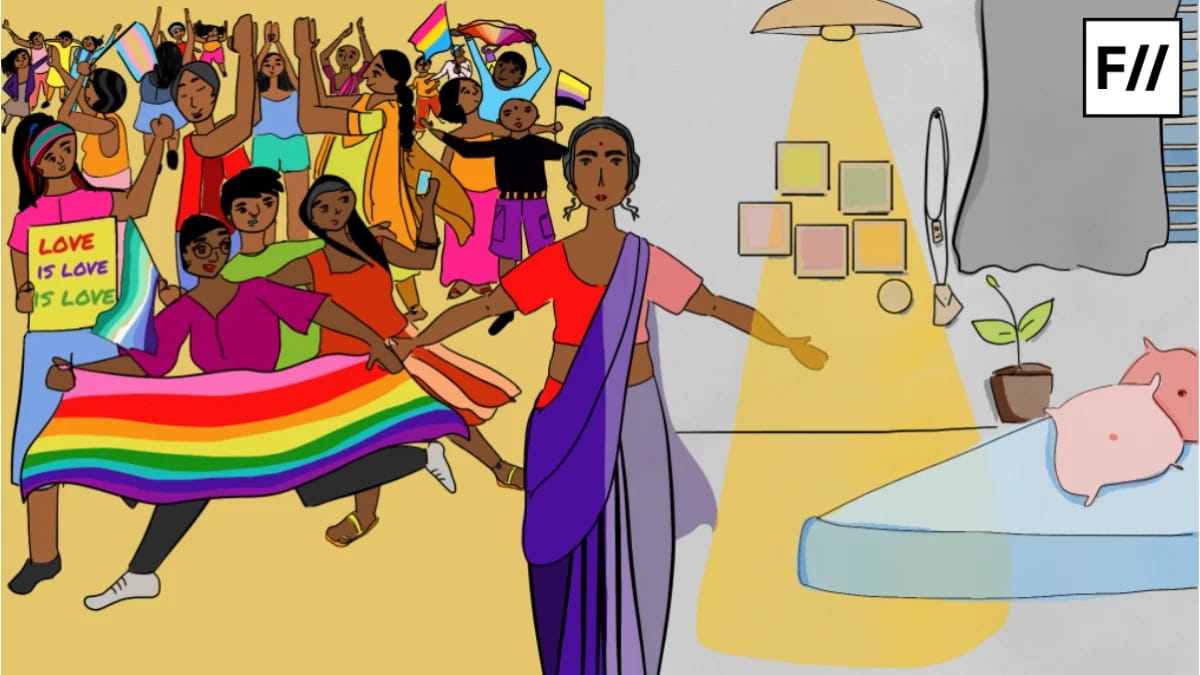
Queer bodies, as well as women’s bodies, are used as conduits and seen as conquests during times of conflict. One is reminded of the mass rapes by the Indian army in the Kashmiri villages of Kunan and Poshpora, as well as the brutalisation of women in the highly militarised regions in Northeast India. Experiences of conflict and war have been highly gendered– but how often do these narratives find space and precedence in the mainstream discourses on war?
The mental toll of constant conflict on queer people is yet another issue that is hardly addressed in geopolitical discourses. In the North Eastern state of Manipur in India, conflict between the Meitei and Kuki tribes has been exacerbated by State negligence. While the people of Manipur live in danger, precarity and extreme fear, the government’s refusal to acknowledge Manipur as a conflict zone has further jeopardised the Manipuri queer community. Renowned Manipuri trans rights activist Santa Khurai outlines this crisis unfolding in her state.
‘Conflict in my life keeps causing me mental health problems. It really hurts my ability to get things done, at work and in general. It affects everything – from money worries to the constant anxiety I feel just being out in public. This tortures me inside, turning into anger, a lack of confidence, low self-esteem and fear. The trauma of facing violence and intimidation at public protests, along with threats from armed groups and local governing bodies, has left me feeling drained and vulnerable. Often, I feel like a walking dead person, numb and disconnected from the world around me.’ Khurai shared.
Khurai told FII that, in the present context of Manipur, the political conspiracy between the Myanmar and Indian governments involving different ethnic communities that led to the rise of ethnic nationalism is often tied to patriarchal ideologies.
Khurai told FII that, in the present context of Manipur, the political conspiracy between the Myanmar and Indian governments involving different ethnic communities that led to the rise of ethnic nationalism is often tied to patriarchal ideologies. She described how this sort of conflict especially affected the Manipuri queer community.
‘This reality makes it harder for us to continue fighting for human rights freely and openly, unlike in the past. It stops us from being visible and from building our community. The political unrest in Manipur has also broken down the support system and solidarity we used to have in our community,‘ she shared.
Describing how queer struggles should be informed by liberationist and pacifist politics, Khurai described how the conflict in Manipur has shaped her activism.
‘Living through such conflict has made me see things differently and has shaped my perspective. It has pushed me to look beyond the conventional ideas about what it means to be queer/trans and especially about what “freedom” and “identity” really are. Because in the larger political conflict/issue, people like us are often ignored or have to give up our freedom for the larger interest of the common populace. And this taught me that the trans and queer liberation movement requires a different approach, as the larger political conflict completely overlooked our struggle for freedom. This has broadened my perspective on vulnerability and marginalisation and the multifaceted nature of identity,‘ she said.
According to Khurai, during major political conflicts, trans and queer people suffer the most for many reasons: ‘War destroys the connections we have with each other. Sadly, at the national level, some of the community individuals fall trapped in nationalistic tendencies and start seeking power and privilege, becoming religious fundamentalists, and experiencing identity and ideological clashes. In this contestation, the community loses the sense of communion, belongingness and togetherness, and that weakens our liberation movements.’
Khurai’s work transcends gender-based struggles and her activism advocates for the victims of conflict in Manipur amidst state-caused obstacles and negligence.
‘Since the beginning of the conflict, we have been helping and supporting internally displaced individuals in relief camps. Under the banner of AMaNA (All Manipur Nupi Maanbi Association), we provided women’s and girls’ care materials, medicine, food, and financial aid. When the communal tension was at peak, we also rescued and aided trans people caught in the crossfire, regardless of their ethnic background. Unfortunately, the lack of media attention has kept the conflict unnoticed to the people outside the state. This limits our access to external funding and relegates it to a local-level issue,’ she said.
‘Since the beginning of the conflict, we have been helping and supporting internally displaced individuals in relief camps. Under the banner of AMaNA (All Manipur Nupi Maanbi Association), we provided women’s and girls’ care materials, medicine, food, and financial aid.‘
– Santa Khurai, Manipuri trans rights activist and author.
Beyond this humanitarian aid, Khurai has also written about the “idea of home” from her perspective in the last chapter of her memoir The Yellow Sparrow. That particular section has garnered attention from different people and has been published in their review. She related that she is also excited about her upcoming publication, Hell O Heterosexual, an anthology of poetry she has co-authored with her trans man partner, John. ‘The anthology includes poems that respond to the current Manipur conflict such as “The Hill Jackal and the Valley Lions”, “The Black Swarms” and “The Vexologist”. Through writing I have been able to express my perspective, emotion and feeling about Manipur and the indigenous people of the region to a larger audience. This is one way that I attempt to bring the voice of the Manipuri people to the world.’ She told FII.
Talking about literature which sensitively portrays the conflict in Manipur through a queer feminist perspective, Khurai points to the lack thereof.
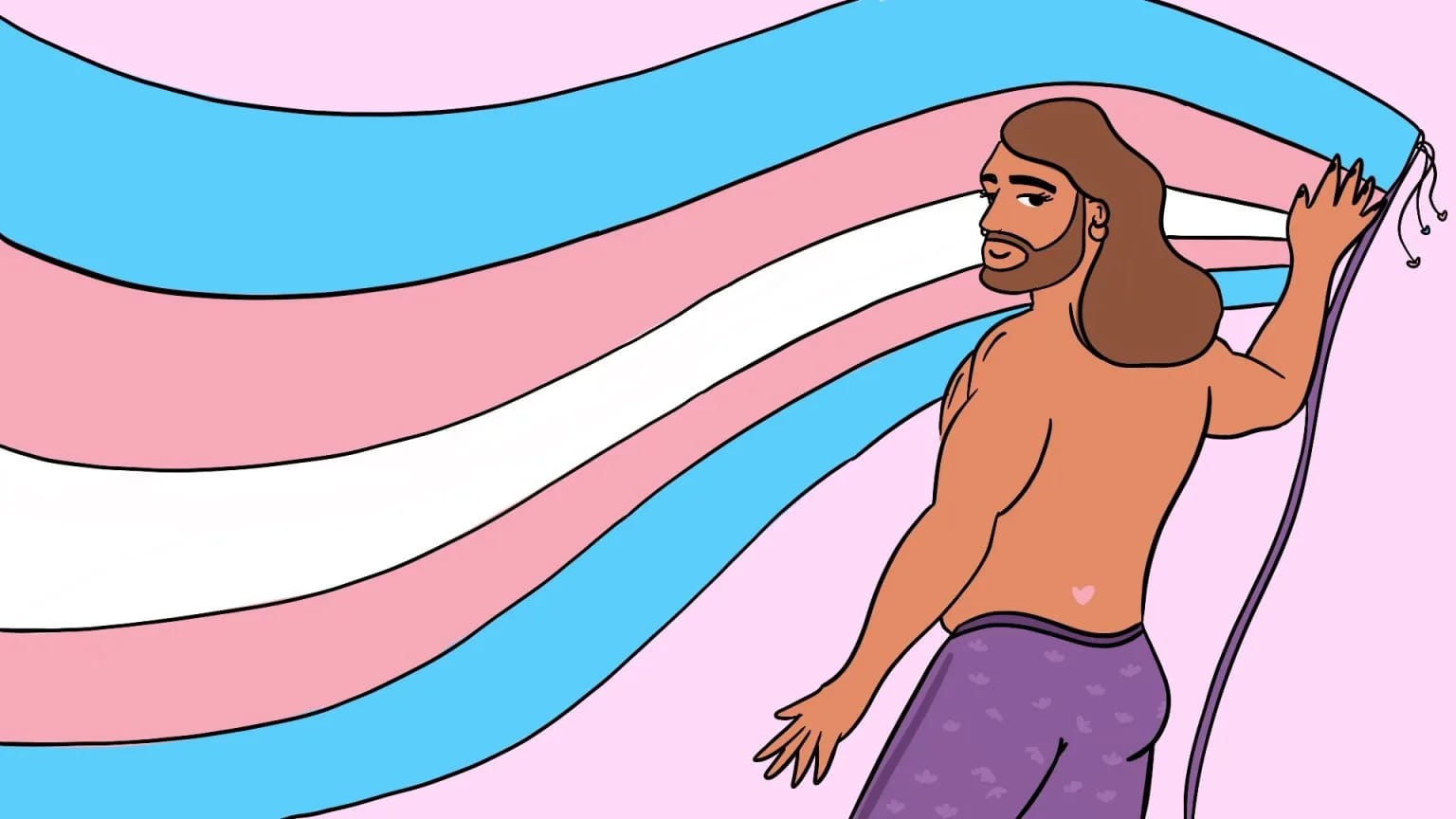
‘Most of the work that I found are a very few LGBT writings, women centric texts, exploration of regional politics, texts on armed conflict, and indigenous and tribal literatures. As a trans feminist from this region, I believe that decolonising our ideas and challenging existing power structures can help reduce violence, prejudice, and conflict. To dismantle dominant and hegemonic narratives, we also need to actively engage with different levels of people, groups and collectives through different approaches, to garner diverse perspectives.‘ She said.
The experiences of queer people in conflict zones are diverse and varied across the globe, but all of these narratives carry the same weight of trauma and persecution. Eeyad, a human rights advocate and interpreter who relocated to Argentina from Syria during the Syrian war, on a refugee sponsorship programme, discusses his experience of conflict and how it affected his activism. ‘Before the war, queer people were not extremely persecuted in Syria, especially in the coastal region where I come from. I was more or less comfortable living my life as a gay person in my small queer community. But the war changed everything. As queer people, we are constantly worried about the uncertain situations that might arise in a wartime circumstance. The queer community experiences war and violence differently due to this‘ he said to FII.
Another crisis faced during times of conflict is the mandatory draughting of adult males into the armed forces. The army continues to be an unsafe and dangerous place for queer men and they are vulnerable to discrimination and sexual violence within this deeply heterosexual and patriarchal institution. Eeyad remembers trying to delay his draft by prolonging his higher education. ‘I can only imagine how traumatising it must have been for my gay friends in the army. They had to hide their identity and were forced to live a lie. I tried to apply for political asylum to avoid the draft; however, you were required to be on European soil to be eligible for refugee relocation sponsorships,‘ he said.
After relocating to Argentina, Eeyad has worked extensively on human rights causes and the rights of queer refugees with the UNHCR. Discussing the work of refugee rights organisations like the Rainbow Railroad and Derechos Humanos, Eeyad stresses on the importance of queer refugee rights globally.
Discussing the work of refugee rights organisations like the Rainbow Railroad and Derechos Humanos, Eeyad stresses on the importance of queer refugee rights globally.
Speaking about artistic and cultural representations of gender and conflict, Eeyad points to the complexity of the Arab world and the prolonged wars and human rights abuses in the region. He points to a culture of censorship which disallows queer voices from telling their stories of war.
Speaking to queer survivors of conflict and war, it is apparent that there needs to be an exploration into LGBTQIA+ narratives of wartime violence, both in geopolitical conversations, policy discussions and artistic and cultural discourses.
Queering geopolitics
The very term ‘queer’ connotes a radical deconstruction of the status quo, which has hitherto allowed oppressive warmongering ideologies to exist. Queering geopolitics not only signifies gendering conflict and including diverse voices in policy decision-making but also subversively reimagines what power and narratives of nation formation look like.
While talking about the recent rise of right wing power in Argentina under Javier Milei, Eeyad discusses the disparaging comments the president made about the queer community in public forums. ‘Argentina was the first country to legalise same sex marriage in all of America. To see a regression under the current regime makes us angry. But that is positive anger that can be channelled into activism. It makes us all come together as a community in the face of fascism.’ Eeyad said.
Past intersectional movements across the globe have exemplified this collective activism. Historically, the queer community in the US as well as South Asia has advocated for immigration rights and amplified the voices of queer refugees and asylum seekers during times of conflict and war. Notably, queer immigrant rights activists like Professor Debanuj DasGupta have pushed for the National Gay and Lesbian Task Force to take an anti-war stance during the Iraq war.
‘Post 9/11, there was a significant rise in anti-Muslim and anti-brown sentiments, especially in New York City. I remember going out for a walk in my neighbourhood in Upper Manhattan and spotting an old Irish bar which had a poster with an image of George Bush Jr. penetrating Osama Bin Laden through the anus. In the image, Bush’s penis was replaced by the Empire State Building. The poster read, ‘You love taking it up the ass, bitch.’ This was the kind of heightened Islamophobia and racism we saw, depicted through a narrative of sexualised violence.’ DasGupta said.
He shared how none of the LGBTQ organisations in the US back then took a stance against this racialised hate after the attack on the Twin Towers. ‘During the ‘war on terror’, a bomb was dropped in Afghanistan. A picture was released which showed the bomb having a homophobic slur inscribed on it. The National LGBT Task Force decided to criticise this display without contextualising it within the broader narrative of hate, racism and imperialism that followed 9/11. As LGBTQ people from the Global South led by The Audre Lorde Project, we decided to chant against the convenient neutrality of the NGLTF at their 2003 conference to take a stance against the war. That pushed them to release a statement against the war.‘ DasGupta said.
Closer home, many Indian queer activists have spoken out against India’s war with Pakistan and the occupation of Kashmir. Activists like Rheea Mukherjee have denounced India’s occupation of Kashmir and have called for a de-escalation of the India Pakistan war, as Kashmiri civilians on the border become collateral damage in the war.
Activists like Rheea Mukherjee have denounced India’s occupation of Kashmir and have called for a de-escalation of the India Pakistan war, as Kashmiri civilians on the border become collateral damage in the war.
Queer responses to conflict are not new. In previous wars, including the Vietnam War as well as US’s attack on Iraq and Afghanistan, dubbed the “war on terror”, queer mobilisation has been advocating for de-escalation and anti-imperialism. During the Vietnam War, when mandatory draughting of young men forced queer people to declare their sexuality in draft documents, which were kept public, many gay men were forced to come out. During the US’ war in the Middle East following the 9/11 attacks, queer identity was leveraged by the State and co-opted to pit the community against anti-war protestors of the time. Furthermore, as DasGupta explains, the State waged the war with the goal of “liberating” Afghan women. Feminist voices called out this white saviour complex and pinkwashing by the state and Kimberle Crenshaw’s theory of intersectionality informed the queer anti-war movements, echoing sentiments of collective liberation and intersectional oppression.
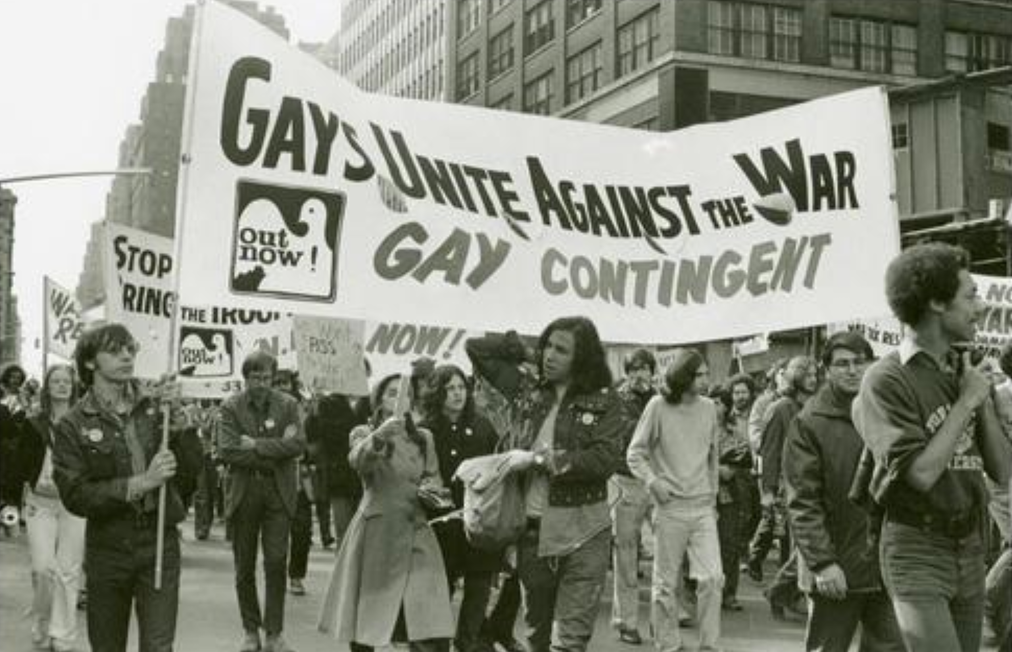
After the escalation of violence in Palestine, queer voices spoke out against the genocide. Organisations such as Queers for Palestine, Queers Undermining Israeli Terrorism, The Audre Lorde Project, and ACT UP NY, along with queer Palestinian activists and academics like Professor Sa’ed Atshan and LGBTQ activist Rauda Morcos, have condemned Israel’s pinkwashing tactics used to justify the genocide.
How do queer feminist responses to war feature in mainstream Pride Walks?
Pride, which started as a riot by trans women, has always been a movement for diverse queer voices to flourish. In recent years, Pride Walks have been spaces to take stances on geopolitical issues, including the Ukraine War, the Israel-Palestine conflict, and the Indo-Pak war.
During the 2024 Kolkata Pride Walk, Dalit queer activist and visual arts practitioner Archee, with queer activist Priyadarshini, raised slogans against the genocide in Gaza.
‘As activists, we must realise that all global liberationist struggles are connected. As queer people, we must speak out against Zionist warmongering. We need to stand for life.’ Archee told FII.
As a result of them speaking out against the ongoing genocide, Archee and Priyadarshini had faced backlash from within and outside the community.
‘We cannot go back to Zionist homonationalist rhetoric justifying a genocide in Palestine just because being queer is illegal there. We must be extremely conscious and empathetic while discussing global politics and must condemn Israel’s pinkwashing tactics.’ Archee said.
Queering the campus: queer feminist responses to war in academia
From the anti war activism during the Vietnam War in 1968 at Columbia University to the US-wide student encampment in condemnation of the genocide in Palestine, the campus has been rife with activism denouncing war and violence throughout history. Academia’s close nexus with activism and translates queer feminist theory in the classroom to actual praxis through progressive mobilisation.
Academia’s close nexus with activism and translates queer feminist theory in the classroom to actual praxis through progressive mobilisation.
During the ongoing Trump Presidency, US Universities, hitherto seen as bastions of progressive thought and culture, suffered massive blows, from fund cuts to censorship. The unprecedentedcrackdown on DEI in education affected the diversity of opinions and politics on campus and contributed to the gatekeeping of knowledge. On March 8, 2025, Mahmoud Khalil, a student activist at Columbia University and lead negotiator in pro-Palestinian protests and campus occupations during the genocide in Gaza, was taken from his Columbia residential apartment building in New York City by U.S. Immigration and Customs Enforcement agents. Another Indian PhD student at Columbia, Ranjini Srinivasan, was forced to self deport after her Visa was revoked on account of her alleged support for Hamas during pro Palestinian protests. Furthermore, in May 2025, the U.S. Department of Homeland Security tried to ban Harvard from enrolling international students due to the University’s alleged non compliance in providing disciplinary records of some international students, particularly those involved in campus protests.
A similar trend is being seen in India with the Statist crackdown on liberal universities likeJawaharlal Nehru University, Jamia Millia IslamiaandJadavpur University and the arrest of scholars and students under the UAPA.
‘I think the Indian and U.S. histories are different. However, I think we’re in the same spot in terms of the campus being the target. And particularly, I think, queer feminists are targeted as the ones who are prone to “make trouble” as dissenters.‘ Says Professor Bishnupriya Ghosh at the Department of English at the University of California, Santa Barbara.
Discussing the attack on free thought and progressive education in the US, Professor Jigna Desai at the Feminist Studies Department at UCSB pointed to the precarity of progressive education and its practitioners. ‘Under the Trump regime, there is an attack on sciences, concepts of gender and critical ethnic studies. So those very things which are being included under DEI are basically the ones that are being sacrificed.’ She told FII.
‘The students are literally putting their bodies on the front lines, getting arrested, deported, detained, attacked, expunged, expelled or suspended.’ She added, referring to the students protesting this crackdown.
Professor Ghosh discussed how queer feminist pedagogy can be employed to empower students to fight back fascism and violence.
Professor Ghosh discussed how queer feminist pedagogy can be employed to empower students to fight back fascism and violence. ‘I am in two departments, English and Global Studies at UCSB. In my classes, I teach my students about the history of knowledge production, media literacy and positionality. The media literacy skills within this disinformation universe are very important. We ask questions like: how do you verify evidence? What sources should you follow? How do you know that they’re not someone’s opinion? How do you deal with opinion? When is opinion important? We also discuss positionality in relation to power and we often explore how to leverage whatever power–political, cultural-, economic–one might have for the collective, rather than individuated, good. This means historical reflections on one’s own privilege or lack thereof.‘ She said.
Professor Ghosh also shared the importance of training students to become active citizens. ‘Teaching students to be active in the public sphere is a crucial component in my classroom. Sometimes this has direct results: for instance, some take jobs in the government or in law firms. At other times, I hope they continue to act responsibly in whatever local context they end up in,’ she said.
Professor Desai told FII how it was necessary to contextualise the curriculum to our political realities. ‘I’ve started almost every class of mine talking about Gaza and talking about why it’s relevant to the class. Gaza is not the only place, but it is the place that we are most responsible for, as someone in the United States. So we talk through what that means and what the implications are, and then we talk about why it’s relevant to the class. So we started with pop culture, we read about Hollywood and its representations and we’re already doing Orientalism. During the Israel-Iran war, for my class, we shifted the focus and read about Iran and how Iran has been represented in the United States. That kind of pedagogical responsibility of being not only brave enough to teach what is necessary, but making sure that we’re doing so as a framing note for our class is important.’ Professor Desai said.
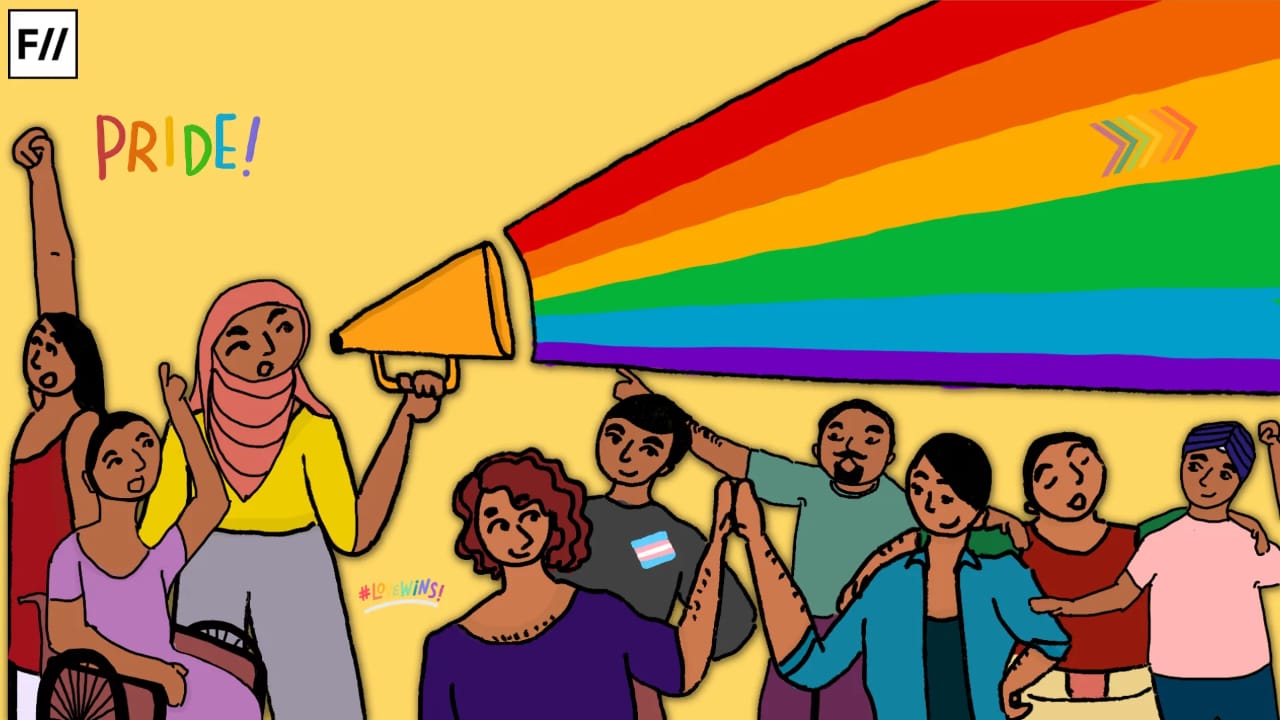
As the violence on progressive thought and the State-sponsored war on education wages on, the campus becomes a battleground for ideologies and rights, both in the US and India. In this context, it is crucial to talk about queer feminist mobilisations against war, conflict and State violence in academic spaces across the world.
‘Nobody is free, until everyone is free‘
Taking off from Fannie Lou Hamer’s statement on global political movements, it is clear that all struggles for liberation are interconnected. As we move towards a more connected and intersectional future, our shared solidarities, despite differences and diversity, are what make the global movements against oppression stronger. In an age of war and violence, it is the consolidated struggle for liberation by historically marginalised and oppressed communities that makes the good fight worth it. As queer people come together in condemnation of violence and imperialism, we can hope for a future without war and persecution, one protest at a time.
This article was written under the mentorship and guidance of Professor Debanuj DasGupta, Associate Professor of Feminist Studies at University of California, Santa Barbara.
About the author(s)
Ananya Ray has completed her Masters in English from Jadavpur University, Kolkata, India. A published poet, intersectional activist and academic author, she has a keen interest in gender, politics and Postcolonialism.

